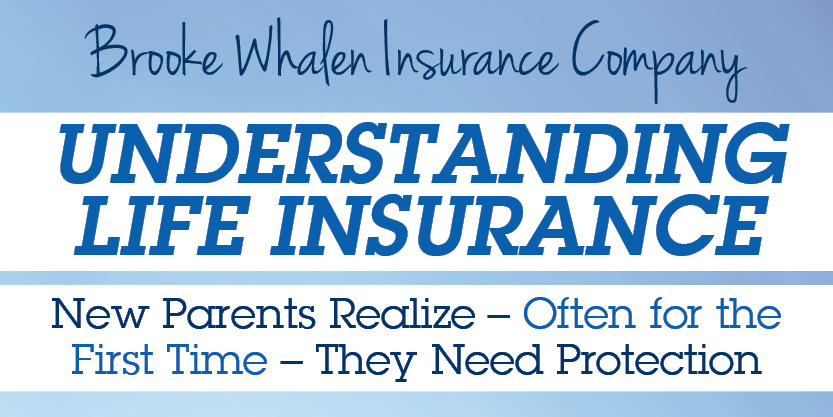Understanding Life Insurance: New Parents Realize – Often for the First Time – They Need Protection
 Once your first child arrives, it’s difficult to avoid feeling the weight of responsibility.
Once your first child arrives, it’s difficult to avoid feeling the weight of responsibility.
Raising a child is an exciting but daunting adventure.
As a parent and spouse, the stakes have just spiked. You have a new life to care for and protect – physically, emotionally, spiritually and financially.
You realize – often for the first time – you need life insurance.
Brooke Whalen of Lexington knows this terrain well. Not only is she the mother of three children under the age of 9, she owns the Brooke Whalen Insurance company.
Rarely does a day pass that she doesn’t discuss life insurance with new parents.
“First of all, most people don’t know much about life insurance, so the first step is education,” she said.
Her message embraces two areas:
1) Most people are woefully under-insured, if they are insured at all
2) You can secure life insurance for as little as $20 a month.
Before deciding, people need to know the lingo. Life insurance comes in two forms – term and permanent (also called whole life or universal life).
Term is more affordable because you lock in a set rate that never rises during the duration (term) of the policy.
For example, you pay a set amount (depending on your age, health, etc.) for $300,000 of insurance over 20 years.
After 20 years, the policy expires. The money you paid in premiums bought you peace of mind for 20 years.
Permanent life insurance is costlier but a cash value builds up over time so that if you want to cancel the policy, a portion of your premium payments is returned to you.
Permanent is to term is like buying a home is to renting a home.
Whalen recommends a combination of both kinds of insurance with the lion’s share devoted to term and a smaller amount in a permanent policy.
Essentially, life insurance is about income replacement. What if something happens to the family’s main breadwinner? The answer is life insurance.
But Whalen recommends that stay-at-home parents also consider life insurance while the children are still at home.
Why? With mom or dad at home, there’s no need for childcare expenses. But without that parent at home, suddenly the family is hit with childcare costs that can reach thousands of dollars a year.
“Does Dad have an extra $500 a month for childcare?” Whalen asks. “And what if Dad has to change jobs because his current occupation requires travel?”
Life insurance can offset those new financial realities.
Whalen also recommends – especially to grandparents as gifts – small policies for children.
A permanent policy can last a lifetime, and as an adult that child would never be denied coverage for ill health.
All insurance needs should be reviewed every five years as the family’s financial situation evolves, Whalen suggests.
Divorce, more children, a new, bigger house – these changes could require insurance adjustments.
No matter what, Whalen emphasizes, every parent should have some kind of policy – if nothing else one to cover funeral expenses.
The good news is that life insurance is affordable – there’s a policy for all budgets.
Whalen thrives on matching families to the right policy.
“I’m a parent and I understand what families are going through,” Whalen said.
“Sharing stories with my clients helps me relate to them and gives me more empathy.
“I love working with and helping people. I want to make sure that my clients – and their families – are protected.”

